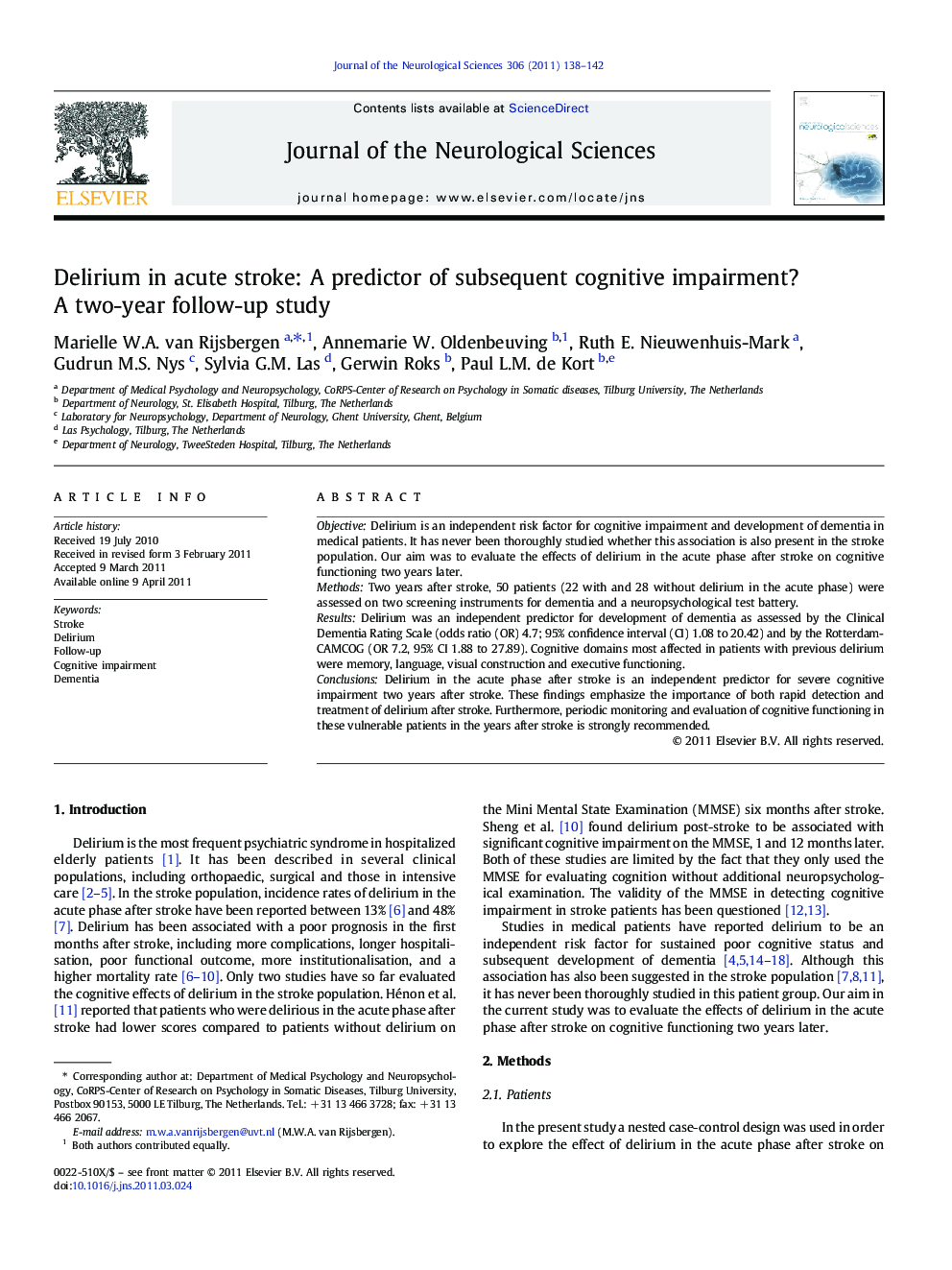| Article ID | Journal | Published Year | Pages | File Type |
|---|---|---|---|---|
| 1914204 | Journal of the Neurological Sciences | 2011 | 5 Pages |
ObjectiveDelirium is an independent risk factor for cognitive impairment and development of dementia in medical patients. It has never been thoroughly studied whether this association is also present in the stroke population. Our aim was to evaluate the effects of delirium in the acute phase after stroke on cognitive functioning two years later.MethodsTwo years after stroke, 50 patients (22 with and 28 without delirium in the acute phase) were assessed on two screening instruments for dementia and a neuropsychological test battery.ResultsDelirium was an independent predictor for development of dementia as assessed by the Clinical Dementia Rating Scale (odds ratio (OR) 4.7; 95% confidence interval (CI) 1.08 to 20.42) and by the Rotterdam-CAMCOG (OR 7.2, 95% CI 1.88 to 27.89). Cognitive domains most affected in patients with previous delirium were memory, language, visual construction and executive functioning.ConclusionsDelirium in the acute phase after stroke is an independent predictor for severe cognitive impairment two years after stroke. These findings emphasize the importance of both rapid detection and treatment of delirium after stroke. Furthermore, periodic monitoring and evaluation of cognitive functioning in these vulnerable patients in the years after stroke is strongly recommended.
